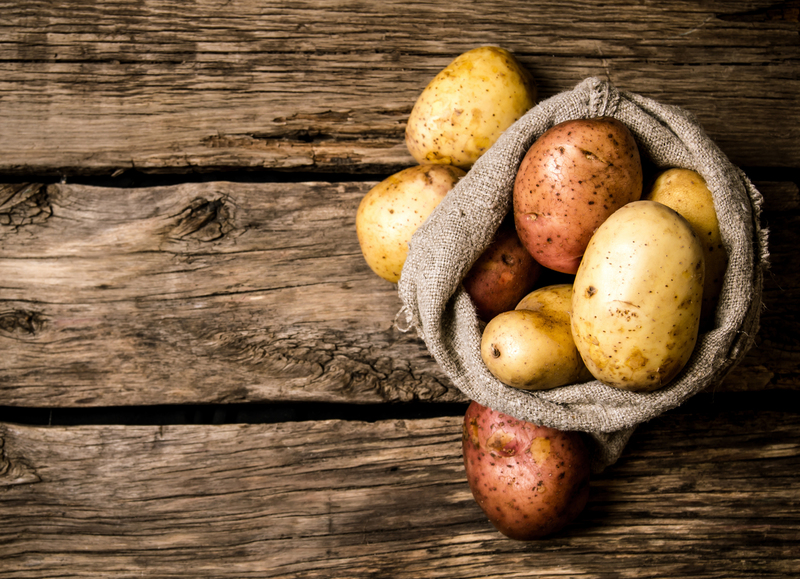Say Goodbye to Weeds: 3 Proven Control Methods
Posted on 05/06/2025
Say Goodbye to Weeds: 3 Proven Control Methods
If you've ever spent a sunny afternoon pulling stubborn weeds from your garden or observed unwanted plants spreading across your beautiful lawn, you know how frustrating weed management can be. Keeping your outdoor space weed-free requires knowledge, patience, and the right strategy. In this comprehensive guide, we explore three proven weed control methods that will help you say goodbye to weeds once and for all. Whether you're tending a vegetable patch, flower bed, or a lush green lawn, these techniques offer consistent, lasting results and help you create a thriving, weed-free environment.
Understanding Weeds: Why Control Is Essential
Before diving into weed removal techniques, it's crucial to understand what weeds are and why their presence is troublesome. Weeds are simply plants that grow where they're not wanted. Unfortunately, they compete with your desirable plants for resources such as sunlight, water, and nutrients. Some can even host pests and diseases or produce chemicals that inhibit the growth of other plants (a process known as allelopathy).
Common weeds found in gardens and lawns include:
- Dandelions
- Crabgrass
- Clover
- Bindweed
- Chickweed
Ignoring weeds for too long allows them to spread aggressively, making it significantly harder to restore your garden. Tackling them early and effectively is paramount for weed-free lawns and productive gardens.

Top 3 Proven Weed Control Methods
So how can you best manage and banish weeds from your property? Here are the three most effective weed control methods:
1. Manual Weed Removal
Sometimes the simplest way is still the best. Manual weed control involves physically removing weeds by hand or with garden tools. This time-tested method remains highly effective, especially for small gardens or spot treatments.
Key Benefits of Manual Weed Removal:- Targets weeds without chemicals
- Helps avoid damage to nearby plants
- Reduces the weed seed bank when roots are fully removed
- Hand fork or trowel: Great for loosening soil around roots
- Weeding knife: For deep-rooted weeds like dandelions
- Hoe: Perfect for slicing weeds off just below the soil surface
- Weed after a rain or watering--the soil will be softer, making it easier to pull out entire roots.
- Remove weeds before they set seed to prevent spread.
- Dispose of weeds carefully; don't compost those that have set seeds or persistent roots.
2. Mulching: A Barrier Against Weeds
Mulching is a *powerful* technique that involves spreading an organic or inorganic layer over your soil. Mulch suppresses weed growth by blocking sunlight, making it difficult for weed seeds to germinate and thrive. It also has the added benefit of conserving soil moisture and improving soil health.
Types of Mulch for Weed Suppression:- Organic mulches: Leaves, straw, grass clippings, wood chips, bark, compost
- Inorganic mulches: Landscape fabric, black plastic, gravel, or rubber mulch
- Clear the area of existing weeds before applying mulch.
- Spread mulch 2-4 inches deep over bare soil. Thinner layers let light through, while overly thick layers can smother plants or retain too much moisture.
- Keep mulch a few inches away from the stems or trunks of your plants to prevent moisture buildup and rot.
- Replenish mulch as needed, especially in high-traffic areas or as organic mulches decompose.
- Reduces the need for herbicides or constant hand weeding
- Improves soil structure as organic mulch breaks down
- Helps moderate soil temperature and improves water retention
For anyone looking for a low-maintenance weed barrier, mulching is a top recommendation for both gardens and landscaped beds.
3. Chemical Weed Control: Herbicides for Serious Weed Infestations
There are times when weeds seem to take over, and chemical weed killers (herbicides) become necessary for effective weed management. These products can save countless hours for homeowners dealing with large-scale or persistent weed problems.
Types of Herbicides:- Pre-emergent herbicides: Prevent weed seeds from germinating (e.g., applied in early spring for crabgrass control).
- Post-emergent herbicides: Kill existing weeds above the soil surface. These can be selective (targeting only certain plants like broadleaf weeds) or non-selective (killing all plants they touch).
- Choose the right herbicide for your weed type and location. Read the label carefully before purchase.
- Apply when conditions are calm--wind can carry sprays to non-target plants.
- Wear protective clothing, gloves, and goggles--safety first!
- Avoid applying when rain is expected soon afterward, as this can cause runoff.
- Keep pets and children away during and after application, as instructed on the product label.
Integrated Weed Management: Combining Methods for Best Results
The most successful approach to banishing weeds is often a mix of manual, mulching, and targeted herbicide methods. Integrated weed management (IWM) combines multiple weed control strategies to maximize effectiveness and minimize labor, time, and environmental impact.
- Start with hand removal or hoeing for visible weeds.
- Apply mulch soon after to prevent regrowth and weed seed germination.
- Use herbicides for persistent or invasive species only when necessary.
This layered approach allows for customization based on the unique needs of your garden and climate, ultimately ensuring a healthier landscape and fewer weeds year-round.
Natural and Organic Alternatives to Chemical Weed Killers
If you prefer to avoid synthetic products, there are several organic weed control options available:
- Boiling water: Pouring boiling water over weeds in sidewalks or driveways destroys plant tissues instantly.
- Vinegar-based sprays: Household vinegar mixed with a dash of dish soap works as a natural weed killer, especially on young weeds (note: higher concentration horticultural vinegar is more effective, but handle with care).
- Manual flame weeders: These tools use propane to deliver a burst of heat, frying weeds without chemicals. (Do not use in dry, fire-prone areas.)
- Corn gluten meal: Used as a pre-emergent, it inhibits seed germination and is common on organic lawns.
Remember, even natural methods can impact soil and the health of your garden plants if not used properly. Use targeted applications and maintain regular monitoring for best results.
Long-Term Prevention: Keeping Your Garden Weed-Free
- Keep the soil covered. Bare soil is an open invitation for weeds. Fill gaps with ground covers, flowers, or mulch.
- Plant densely. Crowding out weeds with closely spaced plants reduces available space and resources for weeds to thrive.
- Water wisely. Use soaker hoses or drip irrigation to target water to your desired plants only, depriving weeds of moisture.
- Monitor regularly. Early detection makes weed removal much easier and prevents large infestations.
- Maintain lawn health. Mow high and feed lawns to encourage strong turf capable of out-competing weeds.

Frequently Asked Questions About Weed Control
- What is the most effective way to kill weeds permanently?
An integrated approach combining manual removal, mulch, and targeted herbicide or organic treatments yields the best, long-lasting results. Maintenance and early intervention are essential. - When is the best time to apply weed control methods?
Early spring, as weeds begin to emerge, is ideal. Removing weeds before flowering and seeding ensures they don't spread further. - Are chemical weed killers safe for pets and children?
Many are not, unless specifically labeled as safe. Always follow instructions carefully, and consider organic alternatives in play areas. - Will mulch alone stop all weeds?
Mulch is highly effective, but the occasional persistent weed may still appear through especially determined roots or wind-borne seeds. Combine with other methods for assurance.
Conclusion: Say Goodbye to Weeds for Good
Maintaining a weed-free garden or lawn isn't a dream--it's a reality you can achieve with the right strategies. By combining regular manual weed removal, mulching to block new growth, and judicious use of chemical or organic weed killers for tougher cases, you can keep your outdoor spaces pristine and productive.
Implement these three proven weed control methods today, and enjoy the benefits of a beautiful, healthy, weed-free garden for years to come. Say goodbye to weeds--your plants (and your back!) will thank you.
Ready to take your yard to the next level? Explore our other gardening guides for more expert tips on plant care, soil improvement, and sustainable landscaping!
Latest Posts
Top Picks: Must-Have Gear for Garden Enthusiasts
Garden Your Way to a Healthier Planet and Reduce Climate Change
Unveiling the secrets of container gardening

